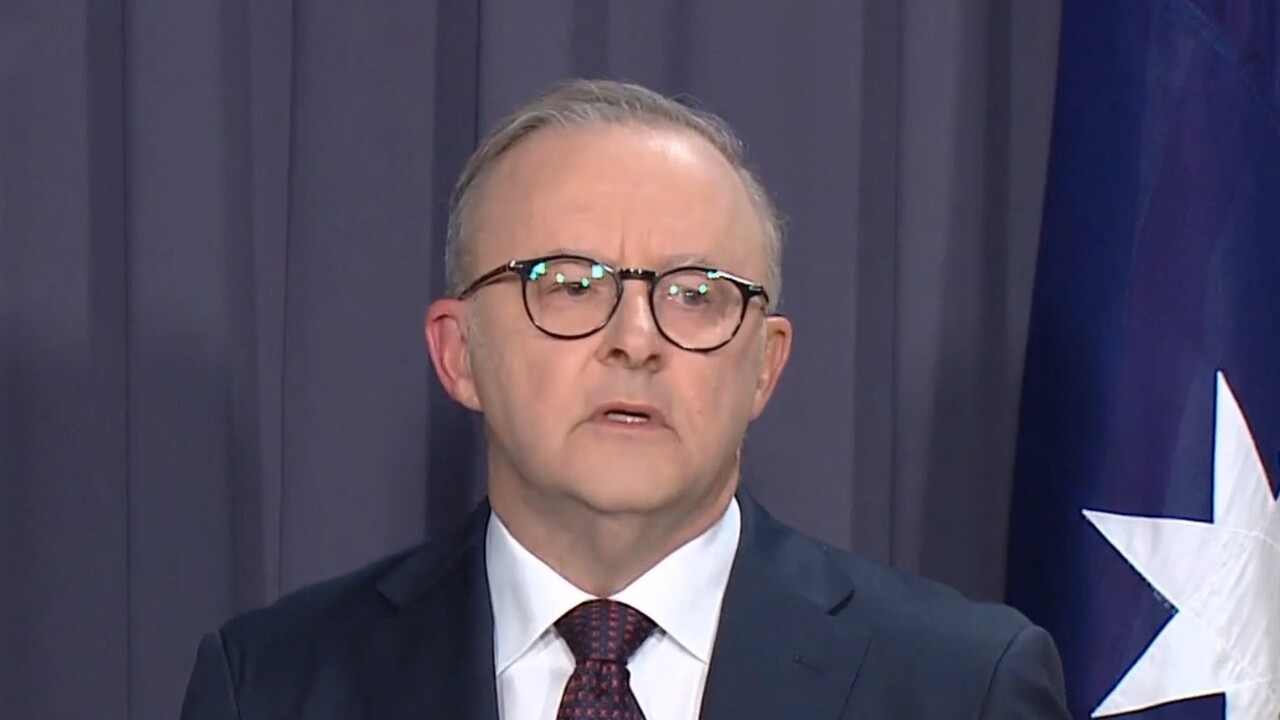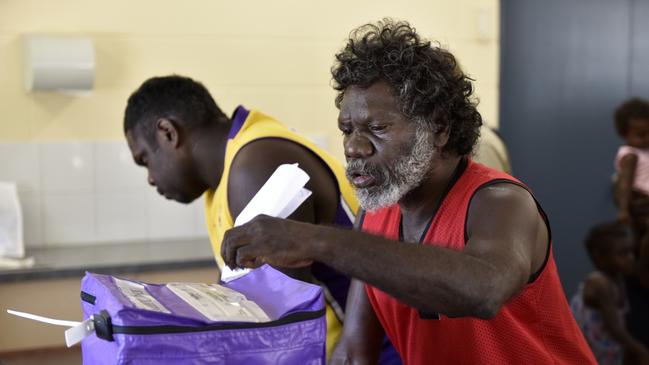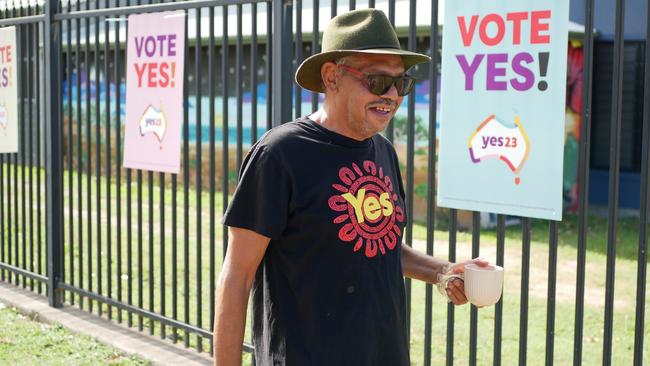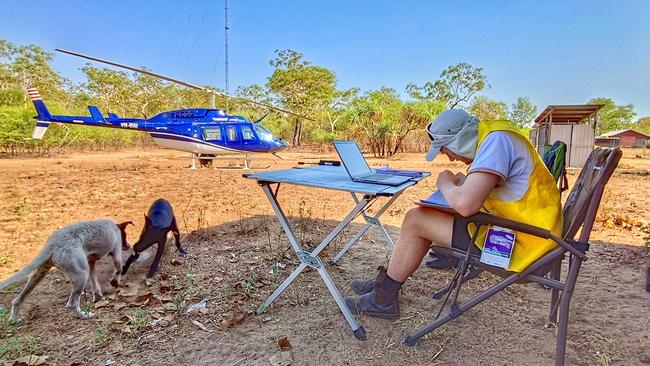Remote polling results reveal strong support for Voice in Indigenous communities
Remote polling results show Aboriginal and Torres Strait Islander people strongly supported the Voice in the Northern Territory and far north Queensland, the Gulf and Central Australia.

National
Don't miss out on the headlines from National. Followed categories will be added to My News.
Remote polling results show Aboriginal and Torres Strait Islander people strongly supported the Voice across the Northern Territory, far north Queensland, the Gulf and Central Australia.
Analysis of Saturday’s referendum results from remote polling vans and booths in areas with a high Indigenous population show Indigenous people in the Northern Territory and regional Queensland consistently voted in favour of the Voice, while communities in north west NSW leaned No and northern South Australia was mixed.
There were 20 Australian Electoral Commission (AEC) remote polling teams that went to towns and communities in the seat of Lingiari, which covers almost all of the Northern Territory outside of Darwin.
Of the 11,029 votes collected, 72 per cent of people voted Yes.
Speaking after the defeat of the referendum, Indigenous Australians spokeswoman Jacinta Nampijinpa Price accused the Yes case of misinformation for highlighting polls suggesting about 80 per cent of Aboriginal and Torres Strait Islander people backed the Voice.

“I knew, having spoken to people throughout the Northern Territory, to Indigenous people … right across the country … that a vast group of Indigenous Australians did not support this proposal,” she said.
But Health Minister Mark Butler said it was clearly a “furphy” to suggest there was not overwhelming support for the Voice among First Nations’ people.
“That was put to rest by some of those results (on Saturday),” he told Sky News.
“Of course, there was not complete uniformity of opinion in the Aboriginal and Torres Strait Islander community, there’s not about anything in any community.”
In the remote community of Tennant Creek, where 55 per cent of residents are Indigenous according to the Australian Bureau of Statistics 2021 census, the town narrowly supported Yes by 50.4 per cent.
In Alice Springs where about 20 per cent of people are Indigenous, the Voice was defeated with 45 per cent people voting Yes – still above the average for Northern Territory of 39 per cent Yes.
In the remote Queensland town of Doomadgee, where 89 per cent of the population is Indigenous according to the ABS 2021 census, more than 66 per cent of people voted Yes.
On Mornington Island in the Gulf, where 80 per cent of people are Indigenous, the Voice secured a 77 per cent Yes vote.
In Yarrabah, where 95 per cent of people are Indigenous, more than 75 per cent of the 663 people to cast a valid vote supported the Yes case.

Also in Queensland on Palm Island, where 91 per cent of people are Indigenous, 75 per cent of voters backed Yes.
In Hope Vale in the far north seat of Leichardt, more than 75 per cent of people in the area voted Yes – significantly higher than the average of 33 per cent for the rest of the electorate.
Three remote polling vans collected 1777 votes from areas like the Cape and Gulf, of which 73 per cent of people voted Yes.

In South Australia three mobile polling teams travelling to remote parts of the electorate of Grey collected 1039 votes, of which 61 per cent voted Yes. In the remote SA town of Ceduna, which has an Indigenous population of 26 per cent, the No vote decisively won with about 66 per cent of the vote.
In north west NSW, the town of Wilcannia which has a 51 per cent Indigenous population, did not support the Voice with only 39 per cent voting Yes.
Remote van polling results from Western Australia have not yet been counted, but in communities like Fitzroy Crossing where 70 per cent of the population is Indigenous, 71 per cent of people supported the Voice.
Also in WA, the community of Wyndam where 56 per cent of people are Indigenous, the Yes case won with 60 per cent of the vote.
Polling conducted by Ipsos in January this year found support for the Voice among First Nations Australians was 80 per cent, with a margin of error of plus or minus 7.3 per cent.
A poll by YouGov in March found 83 per cent of Indigenous people supported the Voice with a 2.3 per cent error margin.





